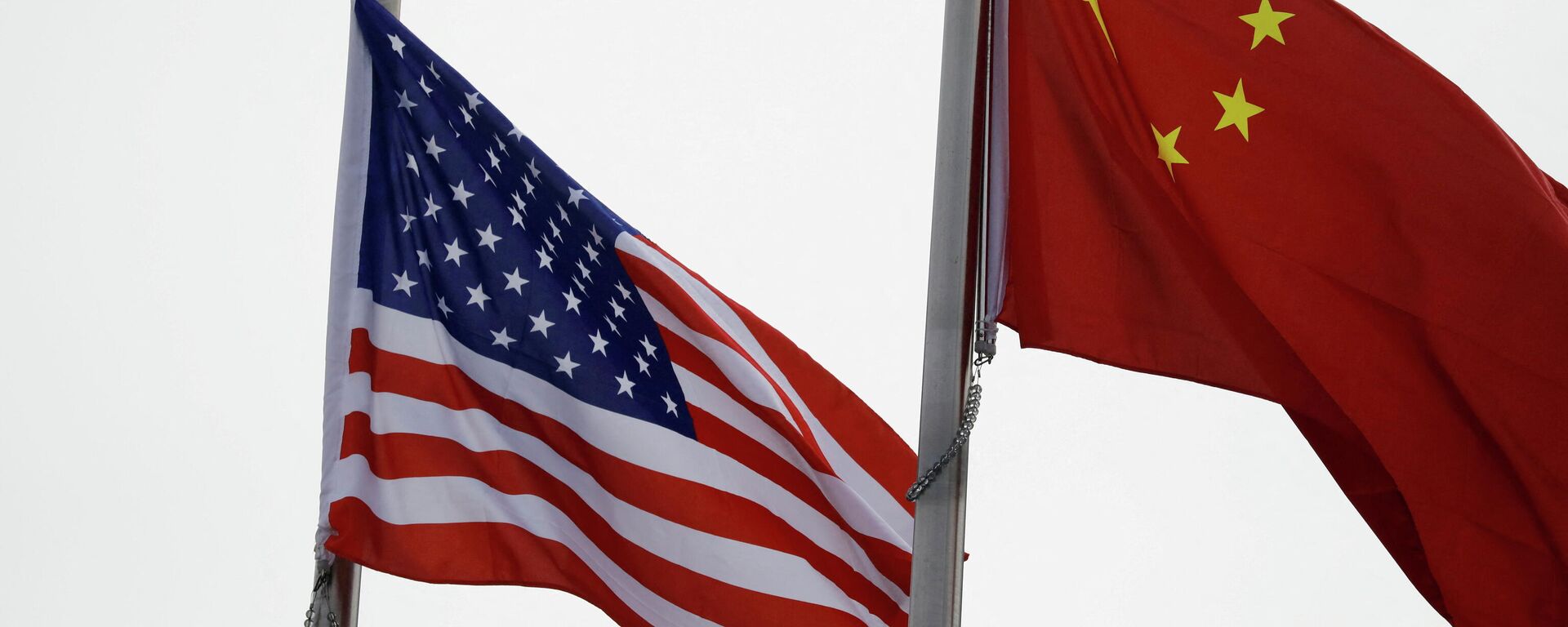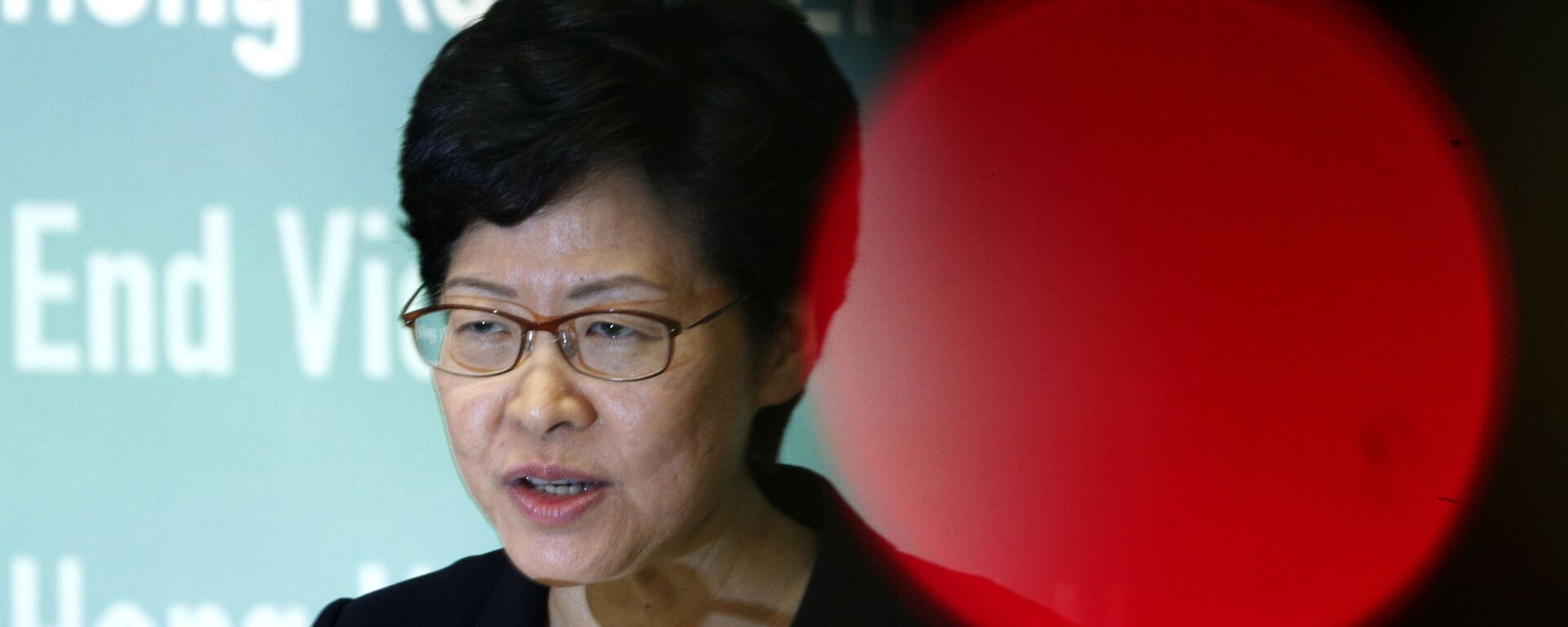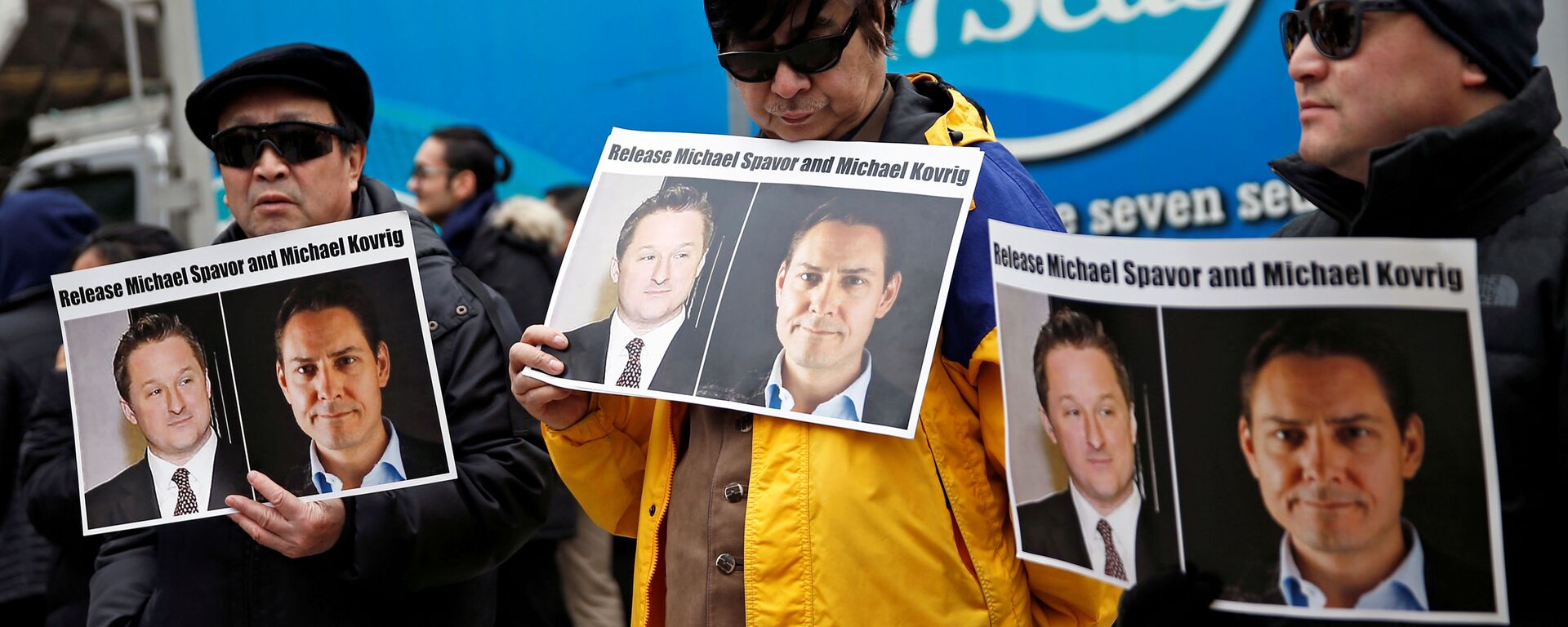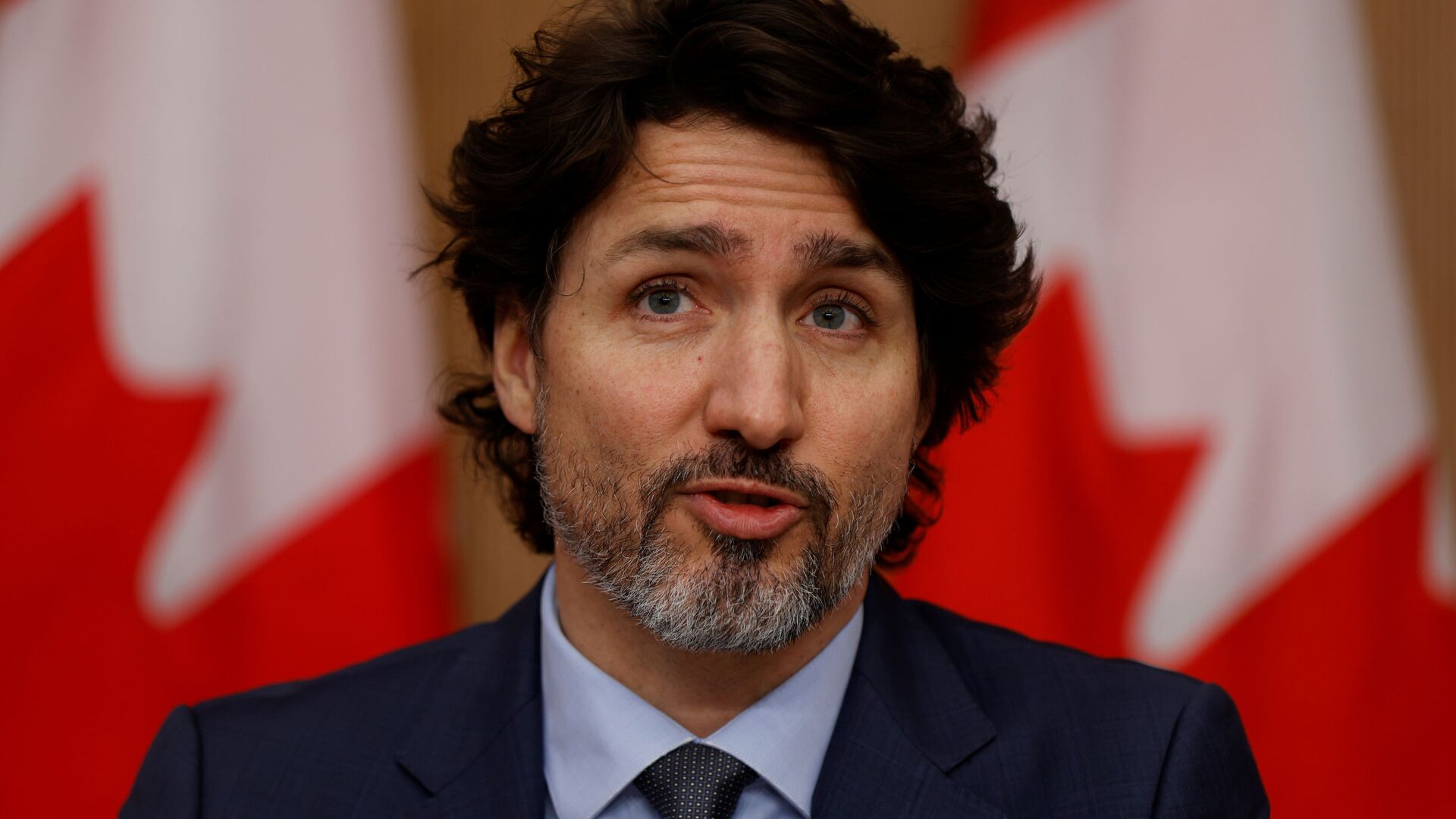https://sputnikglobe.com/20211226/canadas-trudeau-urges-western-states-to-stand-strong-against-china-so-it-cant-play-angles--1091812968.html
Canada’s Trudeau Urges Western States to 'Stand Strong' Against China So It ‘Can’t Play Angles’
Canada’s Trudeau Urges Western States to 'Stand Strong' Against China So It ‘Can’t Play Angles’
Sputnik International
Canadian Prime Minister Justin Trudeau has urged Western countries to put up a united front against China, arguing that Beijing has been successfully "playing" countries against each other.
2021-12-26T12:27+0000
2021-12-26T12:27+0000
2021-12-26T12:27+0000
justin trudeau
canada
https://cdn1.img.sputnikglobe.com/img/07e5/03/0a/1082298026_0:161:3071:1888_1920x0_80_0_0_421fe99d51d682bba8a1a10a7fbcc22d.jpg
Canadian Prime Minister Justin Trudeau has urged Western countries to put up a united front against China, arguing that Beijing has been successfully "playing" countries against each other."We need to do a better job of working together and standing strong so China can't play the angles and divide us one against the other," Trudeau said in an interview with canada's Global News.The Canadian Prime Minister claimed that the Asian state had deftly exploited the commercial interests of individual Western states seeking access to its gigantic market, pitting them against each other.Canada's relationship with China – at one time one of its largest trading partners in Asia – has been strained in recent years. Canada has echoed the allegations spearheaded by the US that 1.8 million Uyghurs and other Muslim minorities are being held in internment camps, located in Xinjiang and other parts of China. Factories in Xinjiang are accused of using forced labour, with Chinese authorities were accused of forcibly sterilising Uyghur women. Beijing has denied all the accusations and said the facilities that rights groups refer to are in fact "vocational training centres" used to eradicate extremism and stamp out poverty. Claims of “forced labour” were dismissed as "fabricated".Beijin strictly complies with international labour laws and domestic legislation, resolutely suppressing any illegal activity in this area, and there is no such thing as "forced labour" in the Muslim-dominated region of Xinjiang, stated China's legislature, the National People's Congress (NPC).Canada also expressed concern that Beijing was “stifling peaceful political expression” and continuing to “encroach on fundamental rights and freedoms in Hong Kong”. Reference was made to the arrests of demonstrators who participated in anti-government protests between 2019 and 2020.Hong Kong is a former colony of the United Kingdom that was handed over to China in 1997, with London and Beijing signing a Joint Declaration that enshrined civil liberties under the "one country, two systems" principle.Beijing had pledged to allow the city to retain civil liberties for 50 years after it was handed to China, but subsequently ushered in a series of measures, including the national security legislation that prompted criticism both internally and externally, with countries like Australia, Canada, Japan, and the United States expressing concern about it.While critics say the legislation violates this principle and abolishes the region’s autonomy from China, Beijing argued the law brings stability to Hong Kong. Furthermore, China has repeatedly stated that matters relating to Hong Kong are an internal affair and has warned against external pressure.Another notable issue that soured relations between Canada and China was the arrest of Huawei Chief Financial Officer Meng Wanzhou, a Chinese national, at Vancouver International Airport on a US extradition warrant in 2018.In a move seen as retaliatory, China detained two Canadians soon after. Meng Wanzhou, daughter of the giant telecoms corporation’s founder, was freed this September after three years of house arrest in Canada following an agreement with the US justice department to suspend the fraud charges against her, resulting in the release of the two Canadian nationals.Canada has also joining other Western countries in a diplomatic boycott of the 2022 Winter Olympics in Beijing in February.“Canada will not send diplomatic representation to the 2022 Winter Olympic Games in Beijing to be held from 4 - 20 February due to concerns of human rights violation in China, Canadian Prime Minister Justin Trudeau had stated.China slammed the boycotts, saying the move violates "the principle of political neutrality of sports established by the Olympic Charter and runs counter to the Olympic motto ‘more united’".
https://sputnikglobe.com/20211224/china-says-us-claims-of-forced-labour-in-xinjiang-fabricated-1091776792.html
https://sputnikglobe.com/20211214/hong-kong-leader-carrie-lam-receives-letter-containing-razor-blade-and-threats-1091511873.html
https://sputnikglobe.com/20210925/canadas-trudeau-reveals-two-detained-canadians-have-been-released-after-wanzhou-departure-1089388920.html
canada
Sputnik International
feedback@sputniknews.com
+74956456601
MIA „Rossiya Segodnya“
2021
News
en_EN
Sputnik International
feedback@sputniknews.com
+74956456601
MIA „Rossiya Segodnya“
Sputnik International
feedback@sputniknews.com
+74956456601
MIA „Rossiya Segodnya“
china us canada justin trudeau
china us canada justin trudeau
Canada’s Trudeau Urges Western States to 'Stand Strong' Against China So It ‘Can’t Play Angles’
Earlier in December, two days after Washington announced its diplomatic boycott of the 2022 Winter Olympic Games in Beijing on December 6 over alleged “ongoing genocide and crimes against humanity” and “other human rights abuses", Canada followed suit, saying it would not send diplomatic representation to the Games.
Canadian Prime Minister Justin Trudeau has urged Western countries to put up a united front against
China, arguing that Beijing has been successfully "playing" countries against each other.
"We need to do a better job of working together and standing strong so China can't play the angles and divide us one against the other," Trudeau said
in an interview with canada's Global News.
The Canadian Prime Minister claimed that the Asian state had deftly exploited the commercial interests of individual Western states seeking access to its gigantic market, pitting them against each other.
"We've been competing and China has been, from time to time, very cleverly playing us off each other in an open market, competitive way," said Trudeau.
Canada's relationship with China – at one time one of its largest trading partners in Asia – has been strained in recent years. Canada has echoed the allegations spearheaded by the US that 1.8 million Uyghurs and other Muslim minorities are being held in internment camps, located in Xinjiang and other parts of China.
Factories in Xinjiang
are accused of using forced labour, with Chinese authorities were accused of forcibly sterilising Uyghur women. Beijing has denied all the accusations and said the facilities that rights groups refer to are in fact "vocational training centres" used to eradicate extremism and stamp out poverty. Claims of “forced labour” were dismissed as "fabricated".
Beijin strictly complies with international labour laws and domestic legislation, resolutely suppressing any illegal activity in this area, and there is no such thing as "forced labour" in the Muslim-dominated region of Xinjiang, stated China's legislature, the National People's Congress (NPC).

24 December 2021, 12:50 GMT
Canada also expressed concern that Beijing was “stifling peaceful political expression” and continuing to “encroach on fundamental rights and freedoms in Hong Kong”. Reference was made to the arrests of demonstrators who participated in
anti-government protests between 2019 and 2020.
Hong Kong is a former colony of the United Kingdom that was handed over to China in 1997, with London and Beijing signing a Joint Declaration that enshrined civil liberties under the "one country, two systems" principle.
Beijing had pledged to allow the city to retain civil liberties for 50 years after it was handed to China, but subsequently ushered in a series of measures, including the national security legislation that prompted criticism both internally and externally, with countries like Australia, Canada, Japan, and the United States expressing concern about it.

14 December 2021, 11:26 GMT
While critics say the legislation violates this principle and abolishes the region’s autonomy from China, Beijing argued the law brings stability to Hong Kong. Furthermore, China has repeatedly stated that matters relating to Hong Kong are an internal affair and has warned against external pressure.
Another notable issue that soured relations between Canada and China was the
arrest of Huawei Chief Financial Officer Meng Wanzhou, a Chinese national, at Vancouver International Airport on a US extradition warrant in 2018.
In a move seen as retaliatory, China detained two Canadians soon after. Meng Wanzhou, daughter of the giant telecoms corporation’s founder, was freed this September after three years of house arrest in Canada following an agreement with the US justice department to suspend the fraud charges against her, resulting in the release of the two Canadian nationals.

25 September 2021, 01:09 GMT
Canada has also joining other Western countries in a diplomatic boycott of the 2022 Winter Olympics in Beijing in February.
“Canada will not send diplomatic representation to the 2022 Winter Olympic Games in Beijing to be held from 4 - 20 February due to concerns of human rights violation in China, Canadian Prime Minister Justin Trudeau had stated.
China slammed the boycotts, saying the move violates "the principle of political neutrality of sports established by the Olympic Charter and runs counter to the Olympic motto ‘more united’".
"The US will pay a price for its practices. You may stay tuned for follow-ups," Chinese Foreign Ministry spokesperson Zhao Lijian after the US was the first to announce its diplomatic boycott.




